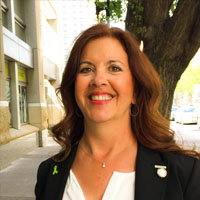Proposition 63, approved by California voters in 2004, created the Mental Health Services Oversight and Accountability Commission to drive transformational change across the state’s mental health system.
The Commission oversees the implementation of the far-reaching initiative, which imposed a 1 percent income tax on wealthy residents to pay for mental health services and established a framework for continuous improvement of mental healthcare in the state.
Partnering with public and private mental health agencies at all levels, the Commission works to ensure that people get the care they need in a timely, comprehensive, effective, and culturally competent manner. In everything, it vigorously promotes community collaboration.
A hallmark of the Mental Health Services Act (MHSA) is its directive that the Commission empower stakeholders and put them at the center of its decision-making process. Accordingly, the law reserves seats on the Commission for representatives of consumers and their families, service providers, law enforcement, educators, and employers, among others. The Commission also includes representatives of the Attorney General, the Superintendent of Public Instruction, the State Senate, and the State Assembly.
Our Role
The Commission’s primary function is to oversee the implementation of the Mental Health Services Act. The Commission distributes grants, collects and shares spending and efficacy data on local programs, spreads best practices, conducts research into critical subject areas like criminal justice involvement of people with mental health needs, and engages experts to develop policy proposals and other pathbreaking solutions.
Data collection is an increasingly important focus for the Commission; its Transparency Suite is an online tool that provides high-level spending and outcome metrics for programs by county.
The Act charges the Commission with reviewing county spending of Mental Health Services Act money for prevention and early intervention programs. The Commission also distributes money raised through the Act for local innovation projects that pioneer new approaches to administration and treatment, like youth drop-in centers.
Another of the Commission’s continuing endeavors is to develop ways to overcome the stigma that often faces people living with mental health challenges.
The Commission advises the Governor and Legislature on mental health policy. In addition, lawmakers have periodically given the Commission new responsibilities, including distributing grants to expand mental health services in schools, helping develop voluntary standards to support mental health in the workplace, and helping to build a statewide suicide prevention plan.
What Guides Our Work
The principles of wellness and recovery guide the Commission, which prioritizes prevention and early intervention to minimize the harmful effects that can result from unaddressed mental health needs, particularly the seven negative outcomes identified by Prop. 63: suicide, incarceration, school failure, unemployment, prolonged suffering, homelessness, and the removal of children from their homes.
The Commission works through partnerships to catalyze transformational changes across service systems so that everyone who needs mental health care has access to and receives effective and culturally competent care.
Racial Equity Plan
The California mental health system has not been designed with an equity lens. Bias, discrimination, a lack of cultural competency and wide disparities exist within the mental health system.
To address these challenges effectively, mental health programs and practices must be informed by these challenges.
In partnership with the Capitol Collaborative on Race and Equity, Race Forward, as well as the work of Vice Chair Mayra E Alvarez and a dedicated team of Commission staff, the Commission created this plan for intentionally building racial equity strategies into Commission operations and priorities.
Commissioners
In Memoriam

Tina Wooton
Tina Wooton worked in the mental health system for 23 years, advocating for the employment of consumers and family members at the local, state and federal levels. From 2009 to 2021 she served as the Consumer Empowerment Manager for the Santa Barbara County Department of Alcohol, Drug, and Mental Health Services.
From 2005 through 2009 she worked as the Consumer and Family member liaison for the California State Department of Mental Health and was staff to the state Mental Health Services Act Implementation Team. Between 1997 and 2005 she served as Consumer Liaison for the Mental Health Association / County Mental Health of Sacramento and as service coordinator for Human Resources Consultants from 1994 through 1997.
Wooton was Vice President of AMP (Arts Mentorship Program) for Santa Barbara Dance Arts and a Santa Barbara Elks member. Commissioner Wooton represented clients and consumers.
Click to read more about Commissioner Wooton in a remembrance.
To request a copy of a specific contract, send an email to: bhsoac@bhsoac.ca.gov
